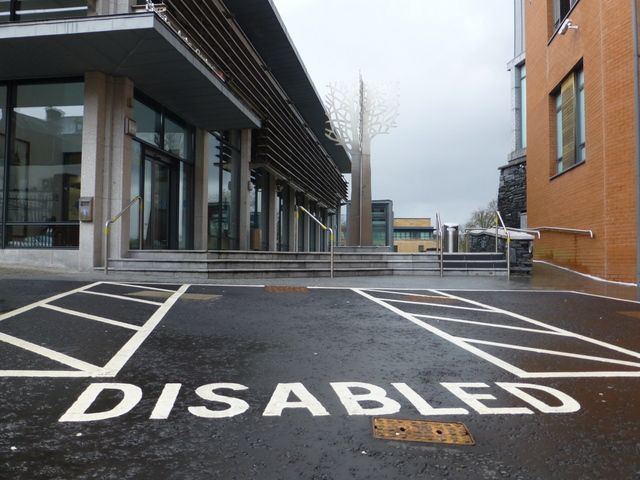
Renting is a way of life for over forty million U.S. households, yet for many, it often feels like navigating a maze blindfolded. Have you ever felt blindsided by a landlord question, or found your security deposit gone missing even though you kept all the emails and receipts? You’re definitely not alone. The truth is, most renters only become truly savvy about their legal standing once a significant problem lands squarely on their doorstep.
This reactive approach can be incredibly costly, impacting your financial stability, compromising your living environment’s safety, and introducing a heap of unnecessary stress into your home life. However, it doesn’t have to be this way! Arming yourself with a solid understanding of your fundamental tenant rights *before* issues escalate can literally save you money, ensure your living space is secure, and provide invaluable peace of mind when things inevitably go sideways. It’s all about proactive empowerment through knowledge.
This comprehensive guide is your essential toolkit, meticulously crafted to help you cut through complex legal jargon and grasp the core federal and state-level protections every American tenant absolutely needs to know. We’ll empower you with actionable insights, from ensuring your home meets basic health and safety standards to understanding the strict rules governing your security deposit and what your landlord can—and absolutely cannot—do. Get ready to stand firm and advocate for yourself with confidence!

1. **The Right to a Habitable Home**First and foremost, every tenant is guaranteed the right to a livable space, a fundamental principle legally recognized as the “implied warranty of habitability.” This isn’t just a nice-to-have; it’s a non-negotiable part of every residential lease, regardless of whether it’s written down or agreed upon orally. Critically, this warranty cannot be waived or signed away by a tenant, establishing a landlord’s unwavering duty to provide and maintain a rental unit that is consistently safe, sanitary, and genuinely fit for human occupation.
The standards for what constitutes a “habitable home” are not trivial; they specifically address serious defects that could directly impact a resident’s health and safety. Think about it: conditions that clearly violate this warranty include severe problems such as a complete lack of heat during winter months, non-working plumbing, or no access to hot water whatsoever. Equally critical are significant roof leaks that compromise the integrity of your home, unsafe structural elements like crumbling walls or broken stairs, and persistent infestations of rodents or insects that make healthy living impossible.
So, what happens if your landlord fails to uphold this crucial warranty? If they neglect to address such a major issue after you’ve properly notified them, they are in breach of this implied warranty. This breach opens the door to several potential remedies for you as a tenant, empowering you to take action. These can include, depending on your jurisdiction, withholding rent, hiring a professional to fix the problem and deducting the cost from your rent, or even terminating the lease and moving out without penalty.
However, a crucial point cannot be overstated: these actions are not to be taken lightly and must be executed according to specific legal procedures. These procedures vary significantly by jurisdiction, so it’s paramount to “check local steps first” and understand your state’s particular rules. Always document everything – “report them in writing, with photos and dates” – to build a clear record of the issue and your attempts to resolve it. This proactive documentation is your strongest defense and guide.
Read more about: The Most Tragic TV Show Endings That Still Feel Unfair: Our Hearts Are Still Broken (and Probably Always Will Be!)

2. **The Right to Privacy and Quiet Enjoyment**Your rental property isn’t just a space you pay for; it’s your home, your personal sanctuary, and you are inherently entitled to its peaceful possession. This includes a fundamental right to privacy, shielding you from unwarranted intrusions by your landlord. Landlord-tenant laws across the U.S. stipulate that landlords must provide “reasonable notice” before entering your unit for non-emergency reasons. While the exact timeframe can vary by state, this is often defined as 24 hours, though some states like Washington generally expect two days.
What exactly constitutes a “non-emergency reason” for entry? Typically, these are routine activities such as making necessary repairs, conducting a scheduled inspection to check the property’s condition, or showing the property to prospective new tenants or buyers. It’s important to remember that this notice requirement applies specifically to these situations. There are, of course, exceptions for genuine emergencies, like a fire, a burst pipe, or a gas leak, where immediate entry is necessary to prevent further damage or ensure safety, and no prior notice is legally required.
Beyond physical entry, you are also protected by the “covenant of quiet enjoyment.” This powerful legal principle ensures that you can live in your home without undue interference, not just from your landlord directly, but also from issues the landlord has the power to control. This could involve, for instance, a landlord’s responsibility to address excessive and disruptive noise coming from another tenant in the building, ensuring that all residents can enjoy their homes peacefully.
This right to privacy is so fundamental that “your lease can’t erase that privacy right.” It’s embedded in tenant law to safeguard your personal space and peace of mind. Knowing your state’s specific notice period is key, and if a landlord consistently violates this, make sure to “document everything: Emails, pictures, dates, names – they’re your best defense.” This record can be crucial if you need to take further action to protect your privacy.
Read more about: Fortifying the Sanctuary: 11 Key Features of Keanu Reeves’s Hollywood Hills Home and Its Protection from Intruders

3. **Security Deposit Regulations**Security deposits are a cornerstone of almost every rental agreement, designed to cover specific costs after a tenant moves out, such as unpaid rent or damages. However, their handling is strictly regulated, often becoming a flashpoint for disputes between tenants and landlords. Laws typically limit the amount a landlord can demand, frequently capping it at one or two months’ rent. For instance, in California, “deposit caps generally sit at one month’s rent now, thanks to a 2024 change,” while “in Texas, no cap, but they must return it or send a detailed deduction list within 30 days after you move out.”
Beyond the initial amount, the regulations extend to how these funds are managed. Landlords are universally required to hold security deposits in a separate bank account, explicitly prohibiting them from mixing these funds with their personal or general business accounts. This segregation is designed to protect your money. When your tenancy concludes, a landlord is legally permitted to deduct money only for unpaid rent or to repair damages that go beyond “normal wear and tear.” It’s vital to understand this distinction.
“Normal wear and tear” refers to the expected, gradual decline in a property’s condition from everyday, ordinary use – think faded paint, lightly worn carpets, or minor scuffs on the walls. These are natural occurrences and cannot be charged to the tenant. In stark contrast, damages like large holes punched in the wall, significant spills that stain beyond cleaning, or broken fixtures due to misuse *are* deductible. This distinction is often the core of deposit disputes, making clear documentation essential.
To protect your investment, there are strict deadlines for the return of your security deposit, which vary by state but typically range from 14 to 60 days after you vacate the property. Should any amount be withheld, the landlord is legally obligated to provide you with a detailed, itemized statement explaining each specific deduction. Failing to meet this deadline or to provide the required itemized statement can result in significant penalties for the landlord, “sometimes requiring the landlord to return double or even triple the amount of the original deposit.” To avoid these common pitfalls, always “take dated photos and make a checklist when you move in and again when you leave.” This meticulous record-keeping is your best defense against unfair charges.
Read more about: Navigating 2025: Why Leasing a Truck Could Be the Smartest Financial Move for Owner-Operators

4. **Protections Against Unlawful Eviction**The thought of eviction is daunting, but as an American tenant, you possess significant legal protections designed to ensure you cannot be removed from your home without due process of law. This means landlords are strictly and legally prohibited from engaging in “self-help” evictions – tactics taken to force a tenant out without a formal court order. These illegal actions are not just unfair; they can lead to severe legal penalties for the landlord and include a range of unacceptable behaviors.
Examples of these prohibited “self-help” tactics are crucial to know. Your landlord cannot change your locks to bar your entry, remove your personal belongings from the property, or arbitrarily shut off essential utilities like water or electricity. They certainly cannot remove a front door or any other integral part of your dwelling. Such actions are explicitly deemed illegal “in almost all states,” underscoring the legal system’s commitment to protecting tenants from arbitrary displacement.
The *only* lawful way for a landlord to evict a tenant is through a formal, structured legal process. This journey begins with the landlord providing proper written notice, clearly stating the reason for the eviction, such as nonpayment of rent or a specific lease violation. If the tenant does not resolve the issue within the stipulated timeframe or move out, the landlord must then file a lawsuit in court and obtain a judgment from a judge. This step ensures that a neutral legal authority reviews the case.
Crucially, even after a judge has issued a court order, the landlord themselves cannot carry out the physical removal. This final, sensitive step must be executed exclusively by a law enforcement officer, such as a sheriff or marshal. “Only law enforcement officials may physically remove tenants.” If you ever face an illegal lockout or similar tactic, “keep records, call police, contact a legal aid office if that happens.” Knowing this process empowers you to defend your right to lawful occupancy.

5. **Protections Against Discrimination**When seeking a home, every tenant in the United States is legally entitled to fair and equal treatment, free from discrimination. Federal law, with the Fair Housing Act as its cornerstone, explicitly makes it illegal for a landlord to discriminate against tenants based on certain protected classes. This sweeping legislation is designed to ensure that everyone has an equal opportunity to secure housing, preventing landlords from making decisions based on prejudice rather than legitimate qualifications.
What exactly are these “protected classes” under the Fair Housing Act? The law prohibits discrimination based on “race, religion, , disability, family status, or national origin.” This means a landlord cannot refuse to rent to you, offer you different lease terms, or evict you solely because of your racial background, religious beliefs, gender identity, whether you have children, or where you or your family originated from. It’s a powerful shield against unfair treatment in the housing market.
It’s also important to note how “” as a protected class has evolved. Thanks to recent HUD policy, “sexual orientation and gender identity count under ‘sex’ now.” This expansion reinforces that landlords cannot treat you differently based on these personal attributes. If you’re a member of a protected class, and you experience unfair treatment—whether it’s being “denied a rental,” “unfairly steered toward, or away from, a building,” or facing different rules—you have a legitimate claim of discrimination.
Knowing your rights is just the first step; taking action is the next. If you suspect discrimination, gather evidence diligently: “Save the ads, texts, and even overheard remarks.” Make sure your application is “in writing.” The context states, “File a complaint online with HUD or your local agency.” This empowers you to challenge discriminatory practices and advocate for fair housing, not just for yourself but for everyone.
Navigating the nuances of tenant law requires a keen eye on specifics that can dramatically impact your living situation. While foundational rights set the stage, a deeper dive into landlord retaliation, disability accommodations, protections for survivors of violence, and the critical disclosures around lead paint, military service, and fair screening processes empowers you to stand your ground with confidence. These next six rights fill out your essential toolkit, moving beyond the basics to arm you with truly comprehensive knowledge.
Read more about: Unveiling Accountability: The $50 Million Racial Bias Settlement and Key Legal Challenges Facing a Tech Giant

6. **Protections Against Landlord Retaliation**Imagine exercising your legal rights, only to find your landlord suddenly taking punitive action against you. This isn’t just frustrating; it’s often illegal. Tenants in the United States are shielded from landlord retaliation when they speak up or act on a legal right. This critical protection ensures that you can advocate for yourself without fear of unfair repercussions that could jeopardize your home.
It is explicitly illegal for a landlord to take negative actions because a tenant engaged in a protected activity. These negative actions could range from attempting to evict you, arbitrarily hiking your rent, or even refusing to renew your lease. These measures are clearly aimed at punishing you for asserting your lawful standing.
So, what counts as a “protected activity”? This includes crucial actions such as requesting a necessary repair for your home, diligently reporting a code violation to the proper authorities, or filing a legitimate fair housing complaint if you suspect discrimination. When you take these steps to ensure your living conditions are met or your rights are respected, the law steps in to protect you.
These anti-retaliation rules are nearly universal, applying “almost everywhere” in the country. This means landlords cannot retaliate with things like rent increases or sudden notices right after you exercise your legal rights. Your ability to speak up, call inspectors, or organize with other tenants is safeguarded, ensuring that your voice truly matters in your housing situation.

7. **Disability Rights and Reasonable Accommodations**For tenants navigating life with a disability, the right to a home that accommodates their needs is not just a courtesy; it’s a legal requirement. Federal laws, including the Fair Housing Act and Section 504, mandate that landlords provide what are known as “reasonable accommodations” to ensure equal housing opportunities for individuals with disabilities. This means landlords must be flexible within reason to support your needs.
What kind of accommodations can you request? These “tweaks” can be physical modifications to the unit, such as installing “grab bars in the bathroom” to enhance safety and accessibility. They can also involve adjustments to rules or policies, like allowing an “assistance animal, even if rules say pets aren’t allowed.” The key is that these requests directly address a disability-related need.
Landlords, especially those managing federally funded properties, “must say yes” to such requests, “unless it’s an undue burden.” This means they generally cannot deny a reasonable request simply because they prefer not to make the change. Your request should enable you to use and enjoy your home in the same way a non-disabled person would.
To ensure your request is handled properly, always “put the request in writing.” Clearly explain what specific need you have that the accommodation will address. Providing “a quick note from a provider helps” to substantiate your request, making it harder for the landlord to deny. This documentation is your strongest advocate in securing the necessary adjustments for your home.

8. **Protections for Survivors of Domestic or Sexual Violence**Living through the trauma of domestic or ual violence can be incredibly destabilizing, and the thought of losing your home during such a crisis is an added burden no one should face. Thankfully, federal protections exist to safeguard your housing. The Violence Against Women Act (VAWA) provides critical safeguards, particularly if your housing is “HUD-assisted.”
These vital protections mean that “living with abuse doesn’t mean losing your housing.” If you are a survivor, VAWA ensures that you have access to specific protections designed to maintain your housing stability. It offers a lifeline during immensely challenging times, focusing on keeping you safe in your home.
Key among these safeguards are provisions for “emergency transfers,” allowing survivors to relocate to a safer unit without penalty if necessary. Critically, “you can’t be evicted or lose your voucher just because you’re a survivor.” This prevents landlords from penalizing you for circumstances entirely beyond your control, ensuring that your housing remains secure as you navigate recovery and safety.
These safeguards underscore a fundamental principle: your status as a survivor should not be a reason to lose your home. They are designed to provide the stability and security necessary for individuals and families to heal and rebuild without the added stress of housing insecurity.
Read more about: Susan Brownmiller, Radical Feminist Who Redefined Rape and Ignited a National Debate, Dies at 90
9. **Lead Paint Disclosure for Older Housing**For anyone considering renting an older property, understanding the risks associated with lead-based paint is paramount for your health and safety. Federal law mandates specific disclosures to ensure tenants are fully informed. If your potential home “was built before 1978,” a crucial piece of information comes into play.
Before you even sign a lease, the landlord “must hand over any info about lead hazards” that they are aware of. Alongside this, they are legally required to provide “an EPA pamphlet” that details the dangers of lead paint. This isn’t just bureaucratic red tape; it’s a vital step to inform you about potential environmental health risks in your living space.
This requirement highlights that “this is a health issue, not legal fine print.” Lead exposure can have serious health consequences, especially for young children, so knowing if it’s present in your home is non-negotiable. The disclosure ensures you have the opportunity to make an informed decision about your housing and take precautions if needed.
If you find yourself in a situation where you “didn’t get that info,” despite the property being built before 1978, it’s imperative to “speak up fast.” Immediately contact your landlord or a housing authority. Ensuring you receive this disclosure is a fundamental right that directly impacts the safety and well-being of you and your family.
Read more about: Tricolor’s $200M Fraud: Unpacking the Collapse of a Subprime Auto Giant and Its Ripple Effects on US Banking

10. **Servicemembers Civil Relief Act (SCRA) Protections**For active duty servicemembers, or those living with them, unique legal protections exist to ease the burdens that military service can place on civilian life, especially concerning housing. The Servicemembers Civil Relief Act (SCRA) is a federal law designed to prevent servicemembers from being disadvantaged in civil proceedings, including landlord-tenant disputes.
Under the SCRA, courts “have to factor that into any eviction process.” This means if an active duty servicemember (or their dependents) is facing eviction, the court must consider their military service and may grant a stay of proceedings, lower rent obligations, or even terminate a lease without penalty under certain circumstances. It’s a recognition of the sacrifices made.
Furthermore, landlords cannot exploit a servicemember’s deployment or active duty status. The law states that “landlords can’t just lock you out or hike up your rent unreasonably.” These protections ensure that those serving our country, and their families, maintain stable housing conditions free from predatory practices.
There’s even a specific “rent ceiling for additional protections, set at $6,802.67/month in 2025.” This cap applies to certain rental agreements and provides an extra layer of financial security, ensuring that military families aren’t subjected to excessive housing costs solely due to their service. These rights are clearly outlined “according to the Code of Federal Regulations,” providing a solid legal foundation.

11. **Fair Tenant Screening and Background Checks Under the FCRA**When applying for a rental, the screening process can feel like a black box, but you have significant rights protecting you from unfair practices. The Federal Credit Reporting Act (FCRA) governs how “screening reports work like credit reports, and they must be accurate.” This ensures that the information landlords use to evaluate your application is reliable and fairly reflects your history.
If a screening report leads to a negative outcome—for example, if it “costs you your apartment or prompts a larger deposit”—the landlord is legally obligated to act. They “must serve an adverse action notice” to you. This notice isn’t just a formality; it’s your key to understanding why you were denied or charged more.
Upon receiving an adverse action notice, you gain specific rights. The landlord must provide you with “the name of the reporting company and a free copy to dispute mistakes.” This empowers you to review the report, identify any inaccuracies, and challenge them. It’s a vital step to clear your name and improve your chances for future housing.
To safeguard yourself in this process, be proactive. “Ask in advance which company they’ll use” for screening. If you are denied housing, promptly “get a copy” of your report. Crucially, “dispute errors (you’ve got about 30 days), and say so in writing.” Taking these steps ensures that any information impacting your housing eligibility is correct and fair, reflecting your federal right to protection from unfair screening practices.
By arming yourself with knowledge of these 11 essential legal rights, you’re not just a tenant; you’re an informed advocate for your own home. From ensuring a habitable living space to safeguarding your privacy, finances, and fair treatment, understanding these protections means you can navigate the rental landscape with confidence and peace of mind. Remember, knowledge is power, and when it comes to your home, it’s truly invaluable.




